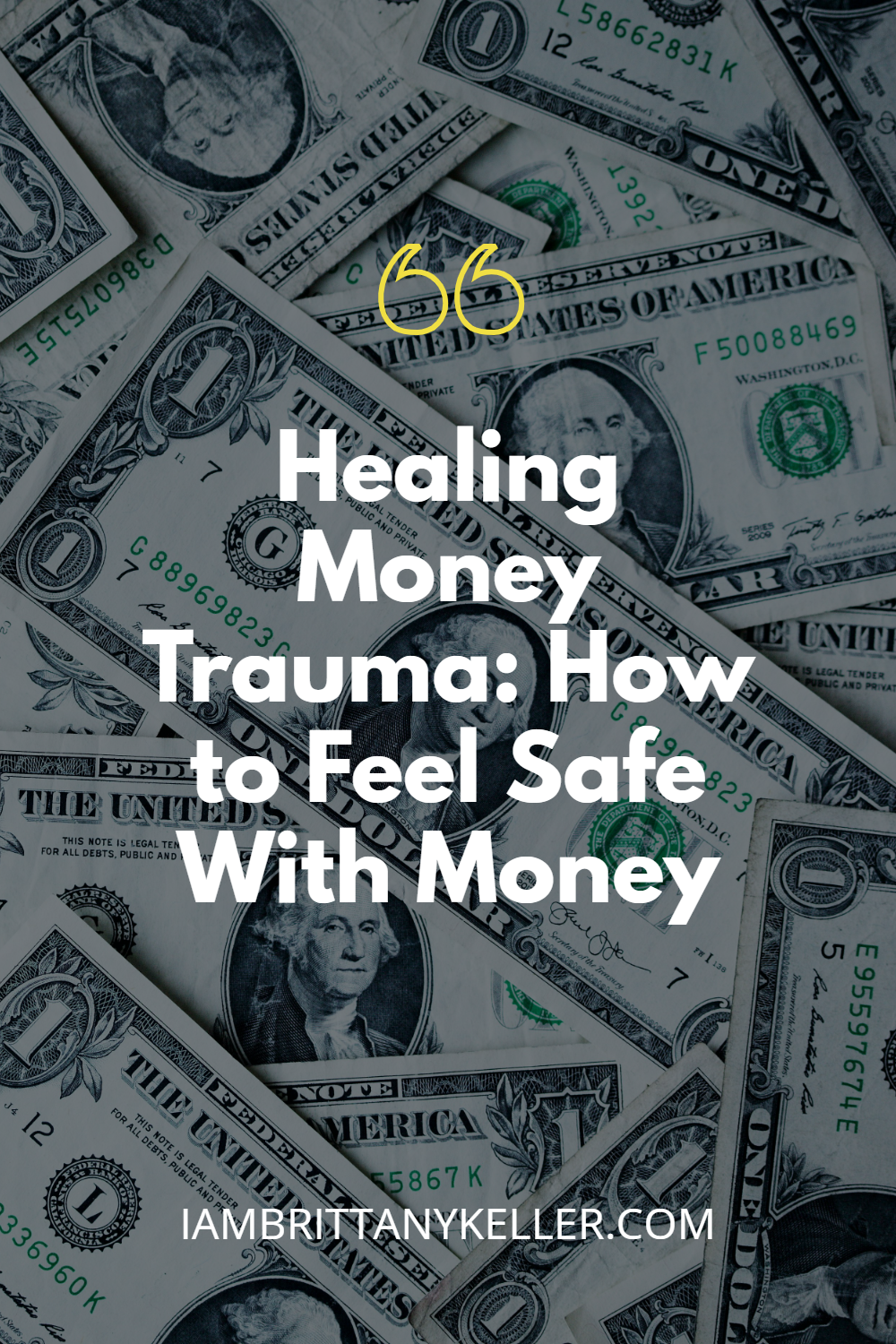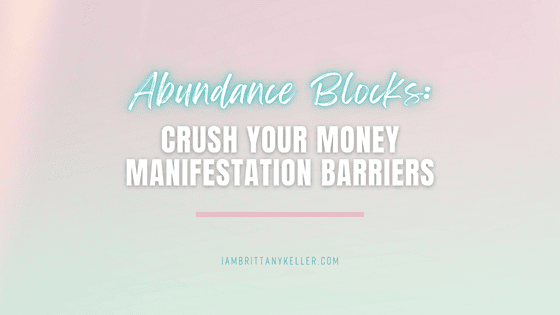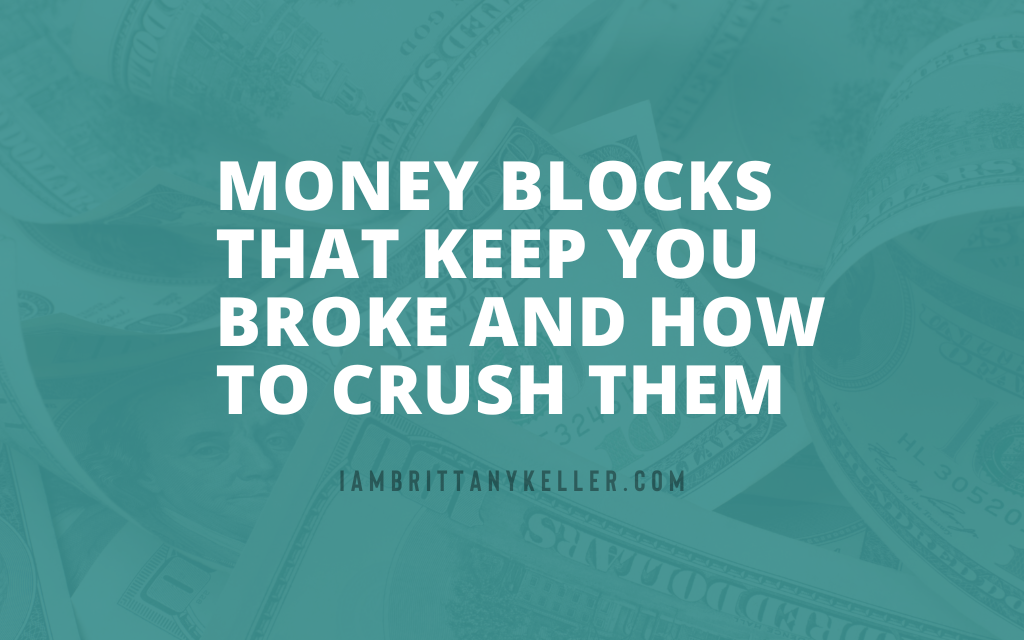Healing money trauma starts with understanding this: money isn’t just about numbers. It’s about safety, identity, and worthiness.
If you’ve ever panicked when a bill came in, avoided checking your bank account, or felt guilty for wanting “too much,” you might be carrying money trauma.
When your nervous system feels safe with money, everything shifts. You stop sabotaging. You stop shrinking. And you finally start receiving more. In fact, 71% of Americans say money causes them significant stress. You can rewire the way your body and mind respond to money, and I’ll show you how.
Quick note: Some links in this post are affiliate links. If you buy, I may earn a small commission at no extra cost to you. I only share products, tools, and services I use, love, trust, and stand behind. When you shop through these links, it quietly supports this work. And for that, I’m forever grateful.

What Is Money Trauma
Money trauma happens when past experiences create a stress response around money that sticks in your body. It’s not “just in your head.” It lives in your nervous system.
For me, it showed up as panic on the first of every month. My paycheck would hit, and I’d rush to pay every bill before the money disappeared. Anytime an email about a new bill came in, my body went into constant high alert.
I see the same thing in my clients all the time. The behaviors look different, but the root is the same: their nervous system doesn’t feel safe with money.
Money trauma often starts in childhood. Maybe you’ve lived through some of this too:
• Hearing “we can’t afford that” on repeat
• Feeling embarrassed for not having the “right” clothes or brands
• Watching your parents fight or stress about money
• Feeling guilty just for asking for something
Those moments get stored in your body and program your brain to associate money with danger. And those patterns stick until you heal them.
Struggling to understand why money feels stressful? Read my blog on Money Wounds: The Real Reasons You Can’t Receive More to go deeper into the emotional side of money patterns.
What Causes Money Trauma
Money trauma usually builds over time. It’s a mix of personal experiences, family beliefs, and even generational patterns you didn’t know you inherited.
Childhood Scarcity and Family Money Beliefs
I grew up upper middle class, but you wouldn’t know it based on how money felt in our house. My mom was raised in extreme poverty, so even when we had enough, I constantly heard, “We can’t afford that.”
Her fears became mine. Scarcity wasn’t reality. It was programming.
I see this with clients too. They think they’re bad with money, but really, they’re carrying beliefs that aren’t even theirs.
Debt, Bankruptcy, and Financial Instability
Debt, unpredictable income, or bankruptcy can wire your nervous system into fight-or-flight mode.
One client avoided looking at her bank statements for years. Even after she paid off her debt, her body still reacted like she was broke. We had to rebuild her sense of safety, not obsess over numbers.
Generational Money Trauma
Money wounds are often passed down. Stories like:
• “Money is hard to come by”
• “Wanting more is selfish”
• “People like us don’t make that kind of money”
These aren’t just beliefs. They become survival codes that keep running your financial patterns until you rewrite them.
Societal and Collective Stress
Recessions, rising costs, and pandemics amplify personal money wounds and make your body feel even less safe with money.
How Money Trauma Shows Up
If money feels heavy, chaotic, or scary, it’s not about discipline. It’s your nervous system protecting you.
Signs you might be carrying money trauma:
• Panic when bills or expenses come up
• Avoiding your bank account or financial decisions
• Overspending for temporary relief
• Hoarding money and feeling unsafe spending
• Undercharging or overgiving in business
• Guilt or shame when receiving
• Feeling like money disappears faster than it comes in
For me, it was the constant fear of “not enough.” No matter how much came in, my body didn’t feel safe holding it, and that kept me stuck.
Why You Can’t Out-Strategy Money Trauma
Budgets, spreadsheets, and strategies are helpful, but they don’t work if your body doesn’t feel safe with money.
That’s why you might:
• Spend it as soon as it comes in
• Delay sending invoices
• Undercharge without realizing it
• Avoid checking your accounts entirely
When I started manifestation work, I thought it was all mindset. But nothing shifted until I focused on my nervous system. That’s when everything changed.
Money safety isn’t a mindset issue. It’s a body issue.
If you want to dig deeper into how your beliefs affect your income, read my blog on Limiting Beliefs About Money That Are Blocking Your Income.
How to Heal Money Trauma
Healing money trauma starts with safety, not shame. You don’t need to fix yourself. You need to teach your nervous system it’s safe to earn, hold, and receive more.
Here’s the framework I use for myself and my clients:
Step 1: Awareness and Acceptance
Notice your patterns without judgment. Pay attention to when money brings up stress, fear, or shame. Those moments point you to what needs healing.
Step 2: Regulate Your Nervous System
EFT tapping is my go-to. It helps your body release stored trauma and stop looping in survival mode. Breathwork and grounding exercises are also powerful practices I use myself and with clients.
Step 3: Reframe Subconscious Money Beliefs
Subliminal affirmations are one of my favorite tools for rewriting deep-rooted beliefs around safety, worthiness, and receiving. I even teach my clients to make their own so they stick.
Step 4: Build Capacity to Receive
Start small. Keep a little extra money in your account and notice what comes up. Practice charging your worth. Say yes to more without guilt. Slow, steady growth keeps your body on board.
Step 5: Use Support and Tools
Healing doesn’t happen in isolation. That’s why I created my Money Blocks Quiz. It shows you exactly which belief is keeping you stuck and how to shift it.
EFT Tapping for Money Trauma
EFT, also called Emotional Freedom Technique, rewires your body’s response to money. By tapping on specific points while focusing on a trigger like fear of bills or guilt about spending, you send safety signals to your nervous system.
One of my favorite resources is Tap Into Money program. It’s a 7-step EFT process that helps release fear, shame, and scarcity patterns so you can finally feel safe holding more.
FAQ: Healing Money Trauma
Money trauma impacts the way you earn, spend, save, and receive, and most people don’t even realize it’s running the show. These are the questions that get asked most often about healing money trauma, along with clear, actionable answers to help you start shifting your patterns today.
How to Heal Trauma Around Money
Healing money trauma starts by focusing on safety, not strategy. Tools like EFT tapping, breathwork, grounding, and subliminal affirmations calm your nervous system so you stop reacting from survival mode. Once your body feels safe, it’s easier to rewrite old money stories and build a healthy, supportive relationship with money.
What Are Money Trauma Symptoms
Money trauma shows up in your habits, emotions, and nervous system responses. Common symptoms include:
• Panic when bills or unexpected expenses come up
• Avoiding your bank account or financial decisions
• Overspending for temporary relief or hoarding money out of fear
• Feeling guilt or shame when receiving
• Always feeling like there’s “never enough”
How Do I Heal My Money Wound
Start by identifying where your money wound began, childhood, debt, family patterns, or generational beliefs. From there, release stored emotions through EFT tapping, breathwork, and somatic practices. Once your nervous system feels safe, you can reframe limiting beliefs, shift old patterns, and create new behaviors around earning, holding, and receiving money.
How to Heal Money Blockages
Money blockages dissolve when you regulate your nervous system and reprogram your subconscious beliefs. Start by noticing inherited stories about money and replace them with affirmations and practices that create safety around saving, spending, and receiving. This combination builds trust with money and opens the door to consistent overflow.
Where Does Money Trauma Come From
Money trauma often comes from childhood conditioning and family beliefs, like hearing “we can’t afford that” or watching your parents stress over money. It can also come from generational scarcity patterns, financial instability, debt, or collective stress from events like recessions and rising costs. These experiences train your nervous system to associate money with fear until you consciously heal and rewire those patterns.
Final Thoughts
You don’t need to hustle harder. You need to feel safer.
When your nervous system trusts that money is safe, you stop sabotaging and start receiving more than ever before.
Ready to find out what’s really keeping your income stuck? Take the Money Blocks Quiz to uncover the hidden beliefs holding you back and learn exactly how to shift them today.
Want to create more income and impact, without the guesswork? Join my group for powerful money mindset shifts and heart-driven business strategies that actually work. Join the group.



